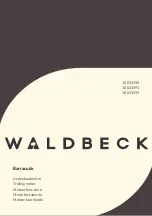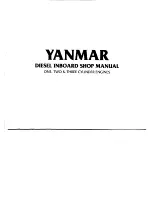
3-36
B-phase advances to A by 90˚. B-phase delays from A by 90˚.
t1
A-phase
B-phase
t1
t1
t1
t1
t1
t1
t1
t2 t2
t2
t3
t2
t4
“H”
“L”
t5
t4
t6
t6 t6
t6
t5
B-phase advances to A by 90˚.
B-phase delays from A by 90˚.
t1
A-phase
B-phase
t1
t1
t1
t1
t1
t1
t1
t2 t2
t2
t3
t2
t4
“L”
“H”
t5
t4
t6
t6 t6
t6
t5
Line driver interface
Open collector interface
Pulse train interface exclusive to line driver
Pulse train interface
Input I/F of PULS/SIGN signal
Permissible max.
input frequency
4Mpps
500kpps
200kpps
t
1
0.25
2
5
Min. necessary time width (μs)
t
2
0.125
1
2.5
t
3
0.125
1
2.5
t
4
0.125
1
2.5
t
5
0.125
1
2.5
t
6
0.125
1
2.5
• Permissible max. input frequency, and min. necessary time width of command pulse input signal.
Make the rising/falling time of the command pulse input signal to 0.1
μ
s or smaller.
Pr0.06 setup value
Command pulse
rotational
(
direction setup
)
Pr0.07 setup value
Command pulse
input mode
(
setup
)
Signal
title
Positive direction
command
Negative direction
command
Command
pulse format
0 or 2
0
1
3
0 or 2
1
1
3
PULS
SIGN
PULS
SIGN
PULS
SIGN
PULS
SIGN
PULS
SIGN
PULS
SIGN
90˚ phase
difference
2-phase pulse
(A + B-phase)
Positive direction
pulse train
+
Negative direction
pulse train
pulse train
+
Signal
90˚ phase
difference
2-phase pulse
(A + B-phase)
Positive direction
pulse train
+
Negative direction
pulse train
pulse train
+
Signal
• Input format command pulse
• PULS and SI
GN represents the outputs of pulse train in put circuit. Refer to the fig. of P.3-30, "Input Circuit".
• In case of negative direction pulse train + positive direction pulse train and pulse train + sign, pulse train will
be cap tured at the rising edge.
• In case of 2-phase pulse, pulse train will be captured at each edge.
4. Inputs and outputs on connector X4
Input Signal and Pin No.
Related page
• P.4-7 “Details of Parameter”
Summary of Contents for MADHT1105
Page 36: ...1 24 MEMO ...
Page 118: ...2 82 MEMO ...
Page 168: ...3 50 MEMO ...
Page 272: ...5 42 MEMO ...
















































